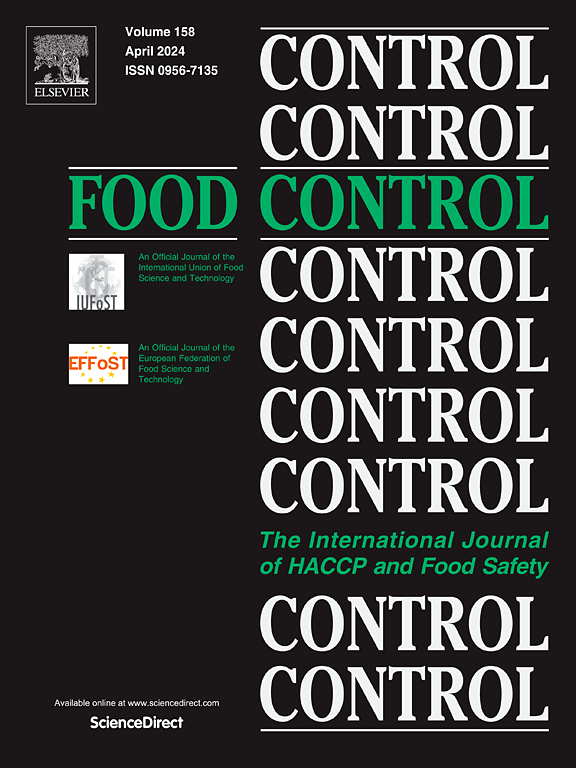A novel cascaded reflective temperature-independent fiber-optic biosensor for trace vanillin concentration detection enhanced specificity with molecularly imprinted polymer
IF 5.6
1区 农林科学
Q1 FOOD SCIENCE & TECHNOLOGY
引用次数: 0
Abstract
A cascade structured reflective sensor consisting of a microfiber interferometer (MFI) and a gold-coated tilted fiber Bragg grating (TFBG) is proposed. A molecularly imprinted polymers (MIPs) specific recognition layer is coated on the MFI surface with pore sites complementary in shape and size to vanillin (VA), which in turn enables the trapping of VA, causing a change in the refractive index of the MFI surface. This process can be translated into a change in intensity difference. The sensor is capable of detecting VA in the range of 0.1–200 μM with a sensitivity of 2.58 dB/(μM) and a detection limit of 0.07 μM. The proposed sensor utilizes a sensitivity matrix that can eliminate temperature cross-sensitivity. Further the performance validation shows that the sensor has high selectivity. The recoveries in real sample detection ranged from 92 to 118%, which demonstrates its high accuracy and reliability in practical applications. Therefore, this new cascade structure reflectance sensor provides an efficient and reliable tool for the detection of VA in the food industry, which is of great significance for food safety and quality control.
求助全文
约1分钟内获得全文
求助全文
来源期刊

Food Control
工程技术-食品科技
CiteScore
12.20
自引率
6.70%
发文量
758
审稿时长
33 days
期刊介绍:
Food Control is an international journal that provides essential information for those involved in food safety and process control.
Food Control covers the below areas that relate to food process control or to food safety of human foods:
• Microbial food safety and antimicrobial systems
• Mycotoxins
• Hazard analysis, HACCP and food safety objectives
• Risk assessment, including microbial and chemical hazards
• Quality assurance
• Good manufacturing practices
• Food process systems design and control
• Food Packaging technology and materials in contact with foods
• Rapid methods of analysis and detection, including sensor technology
• Codes of practice, legislation and international harmonization
• Consumer issues
• Education, training and research needs.
The scope of Food Control is comprehensive and includes original research papers, authoritative reviews, short communications, comment articles that report on new developments in food control, and position papers.
 求助内容:
求助内容: 应助结果提醒方式:
应助结果提醒方式:


